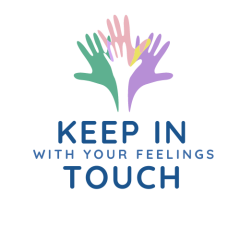Relationship advice is a tricky thing. When unsolicited, it can be annoying and sometimes even insulting (hey, we all have that friend). However, when you actually seek it out, it can be hard to find what you are looking for – like a definitive answer on whether or not yours is healthy and what is truly important.
Sure there is your go-to advice like “don’t go to bed angry” and “respect is important” but we have all heard those before. That’s why we have compiled the best tips from expert therapists they regularly share with their patients.
-
Schedule Dates to Talk About Your Relationship

Manhattan-based licensed clinical psychologist Joseph Cilona said to commit an hour on an ongoing basis to strengthen your relationship, troubleshoot, and make it more satisfying. You can set up a weekly or monthly dinner where you only talk about relationship issues or goals. It might sound boring but getting your “homework” out of the way during a conversation is better than having it sabotage the whole relationship down the road. Make sure you also cover the things you are grateful for and use the time to figure out how to solve problems and minimize them in the future.
-
Be Candid About Your Feelings – the Good and the Bad
Beth Sonnenberg, who is a psychotherapist, says that regularly opening up can bring you closer. Once you think that your feelings don’t matter, won’t be heard or are not worth sharing, you open the door negativity and resentment. This includes positive feelings too – especially when they are connected with your partner. People need to feel appreciated in any relationship.
-
Don’t Expect Your Partner to Be Your BFF
Licensed family therapist and owner of Skylight Counseling Center in Chicago, David Klow, says that we expect too much from our relationship these days. We want our partner to be a best friend, confidant, co-parent and companion. This sets us up to be disappointed when our partner cannot fulfill our needs. Obviously, you should expect your partner to meet some of those needs but the best friend one is complicated. If you feel like your partner is not best friend material for you, finding “healthy alternative ways” to have that need met through others is better. This can free up your relationship to be a source of joy rather than something that lets you down.
-
Remember, Don’t Just Say How You Feel…Show It as Well
Psychotherapist and author of The Happy Couple, Barton Goldsmith, says it is a good idea to tell your partner “I love you” but the act of showing matters as well. He recommends expressing yourself by doing little things like making coffee for them in the morning, warming up their car or stocking the freezer with their favorite flavor of ice cream. A random act of kindness does not take much but it can make a big difference.
-
Fight In a Productive Way
Psychotherapist Jennifer L. Silvershein says that every couple fights but it is essential to fight in a way that moves the conversation forward. Clearly explaining why you are feeling a certain way can make a huge difference. Silvershein recommends being specific about how your partner’s actions impact you. For example, “when you forget to text when you will be late, it makes me feel like you don’t care.”
-
Don’t Be Afraid to Talk About Money

It is easy to fight about finances but talking about money – the right way – can help make your relationship stronger. Cilona explains a couple that communicates their financial goals and is willing to work together to achieve them, will likely have a deeper bond.
-
Before Commenting, Repeat Their Words Out Loud
It is called “mirroring” and here is how it works: when you have an important discussion with your partner, repeat back exactly what you heard them say before you comment on it. For example, “so what you are saying is you think we need more time for just us without friends or kids around?” is more effective. You will be surprised at how the simplest statements are heard differently by various people. Cilona once again explains that this dramatically improves the accuracy and quality of communication by allowing for correction of misinterpretations and creates a strong sense of being heard and understood.
In the comment section below, let us know if you found the above advice useful and plan to use it in your relationship.
